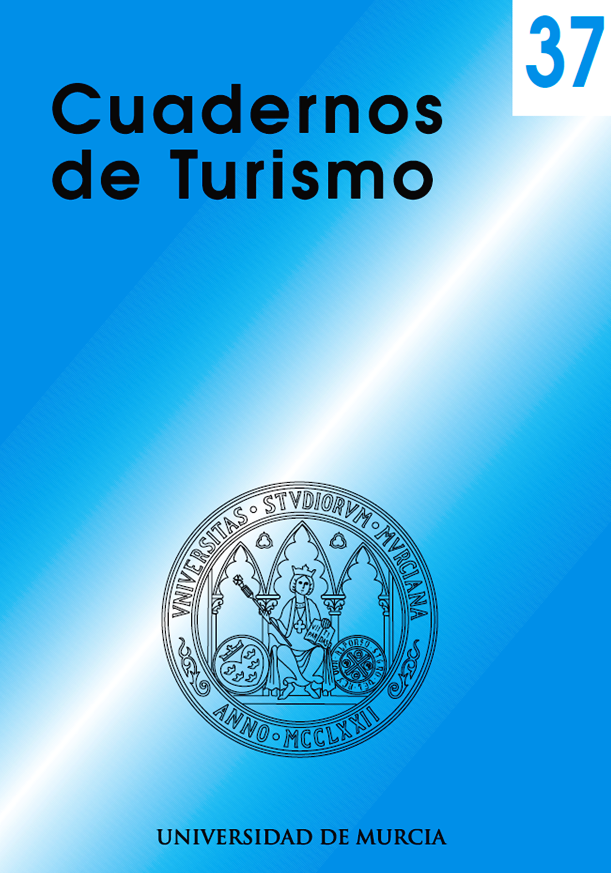The evolution and impact of tourism in the Mediterranean: the case of Island Regions, 1990-2002
Resumen
This paper aims to analyse one of the world’s top tourist destinations, the Mediterranean, and, more specifically, the evolution and impact of mass tourism on its western islands (Corsica, Sardinia, Sicily, Malta and the Balearic Islands) throughout the final decade of the 20th century. Firstly a general overview of world tourism is given, followed by an analysis of tourism in the Mediterranean. In continuation, an in-depth study is made of the evolution and impact of tourism on the aforementioned islands. Finally, possible signs of Dutch disease are examined in these island regions, since their economies have taken advantage of natural resources in the development of their tourist industries, but overspecialization might well jeopardize their future development.Descargas
-
Resumen530
-
PDF 934
-
PDF934
Las obras que se publican en esta revista están sujetas a los siguientes términos:
1. El Servicio de Publicaciones de la Universidad de Murcia (la editorial) conserva los derechos patrimoniales (copyright) de las obras publicadas, y favorece y permite la reutilización de las mismas bajo la licencia de uso indicada en el punto 2.
2. Las obras se publican en la edición electrónica de la revista bajo una licencia Creative Commons Reconocimiento-NoComercial-SinObraDerivada 3.0 España (texto legal). Se pueden copiar, usar, difundir, transmitir y exponer públicamente, siempre que: i) se cite la autoría y la fuente original de su publicación (revista, editorial y URL de la obra); ii) no se usen para fines comerciales; iii) se mencione la existencia y especificaciones de esta licencia de uso.
3. Condiciones de auto-archivo. Se permite y se anima a los autores a difundir electrónicamente las versiones pre-print (versión antes de ser evaluada) y/o post-print (versión evaluada y aceptada para su publicación) de sus obras antes de su publicación, ya que favorece su circulación y difusión más temprana y con ello un posible aumento en su citación y alcance entre la comunidad académica. Color RoMEO: verde.





_.jpg)









